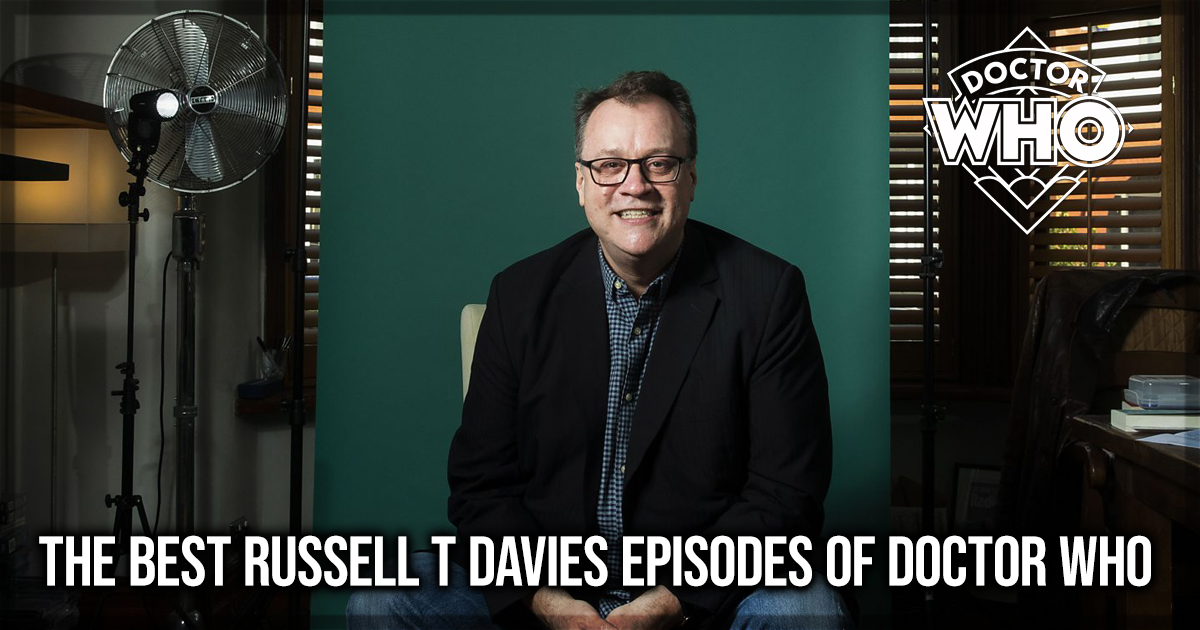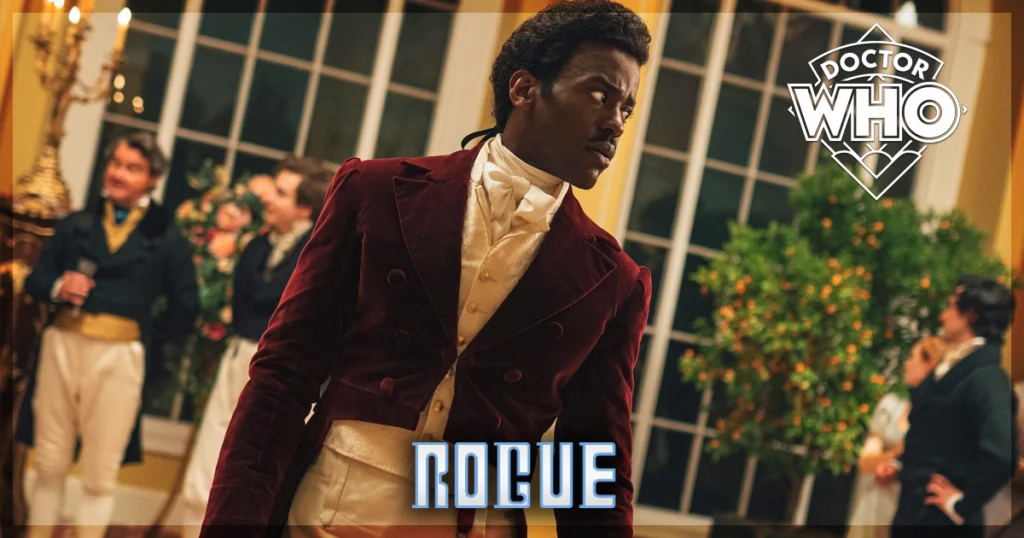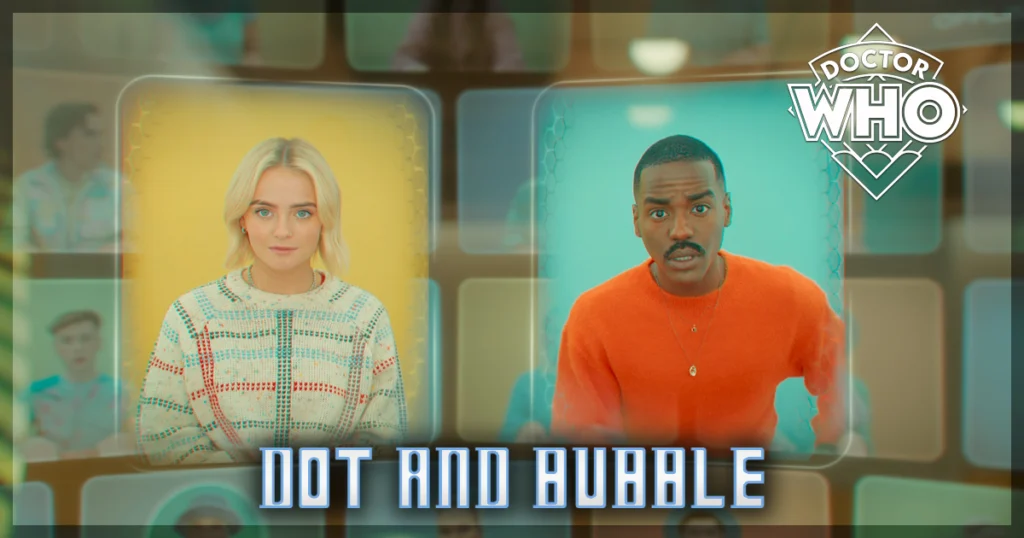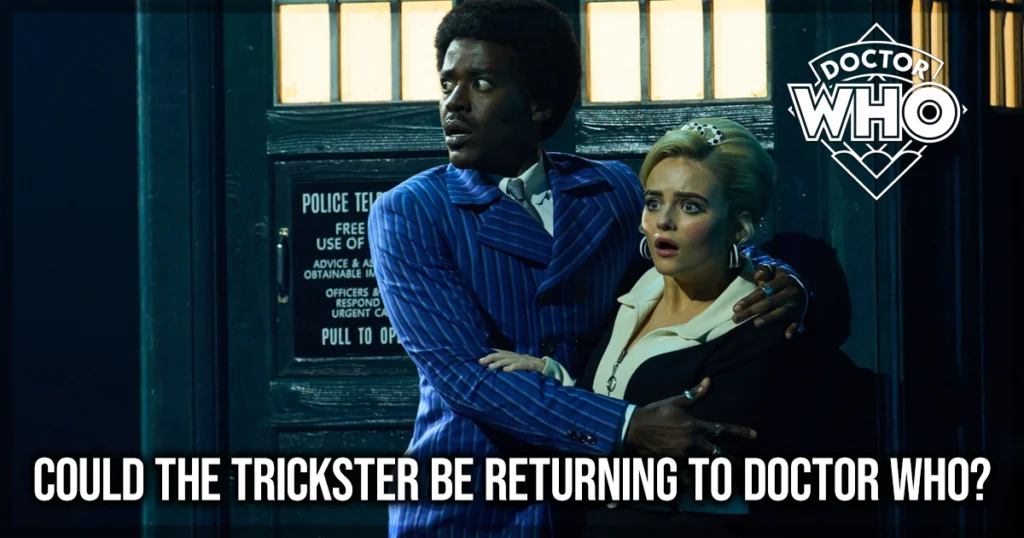Russell T Davies is considered one of the greatest British writers of a generation. He has written what are considered some of the greatest TV shows ever, including shows like Queer As Folk and It’s A Sin. In 2005, Davies was tasked with rebooting the long-running sci-fi show Doctor Who. The show had been canceled in 1989 under the helm of 7th Doctor Sylvester McCoy and had only popped up again in 1996 as a feature-length offering featuring fan-favorite 8th Doctor Paul McGann.
Russell T Davies brought Doctor Who to a whole new generation of people, bringing his talent for human drama and injecting it amongst epic adventures in time and space. He ran Doctor Who up until 2010, leaving an era that will never be forgotten. He has since returned as showrunner for the 60th anniversary and beyond to once again usher it into a fresh new place. He has written nearly 40 episodes of Doctor Who to date, but which ones are the best?
Warning: This article contains spoilers for Series 1-4 of Doctor Who
Rose
Rose is Russell T Davies’ first episode of Doctor Who. It is the jumping-on point for the show in the 21st century. We are introduced to the 9th Doctor, played by Christopher Eccleston, and also to his new traveling companion, Rose, played by Billie Piper. When Rose is confronted by living shop window dummies, she bumps into the Doctor and gets whipped up into his exciting but dangerous adventures. Rose is an important episode because it has to lay the ground rules, whilst also being fun and exciting to keep people hooked.
The balance Davies strikes between the Doctor and Rose is impeccable. We learn just enough about the Doctor to understand the fantastical weight the character holds, but also that he invites danger everywhere he goes. Rose isn’t a passive traveler for long either, as she proves herself by saving the Doctor and Mickey in the final confrontation of the episode, showing that she will more than be able to handle herself. Rose was the springboard to everything that came after it; the Doctor didn’t just ask Rose to go with him, adventuring across the stars, he asked us, too.
The End of the World
If Rose was an introduction to the Doctor and Rose, then The End of the World was an introduction to the endless possibilities that traveling in the TARDIS presented. In The End of the World, the Doctor takes Rose to a space station 5 billion years in the future. They are introduced to a whole host of alien lifeforms, including the last living human, Lady Cassandra, who have gathered to witness the Earth being engulfed by the Sun.
The End of the World gives us our first taste of time and space travel, and the weight of Rose being so far from home is explored in one of the finest scenes Davies’ has ever written for Doctor Who. Doused by the bright yellow hue of the burning Sun, the Doctor does some “jiggery pokery” on Rose’s mobile phone. Rose is then able to call her mother. What is a normal conversation for Jackie is a comforting connection to home for Rose as she overlooks the last remnants of Earth. The scene paints the enormity of the journey Rose has taken with the Doctor in the blink of an eye whilst simultaneously giving us an intimate look into her relationship with her Mum.
Utopia/The Sound of Drums/The Last of the Timelords
The Daleks, Cybermen, and Weeping Angels would all come to mind when you think of famous Doctor Who villains. None, however, quite reach the heights of the Doctor’s fellow Time Lord – The Master. Up to Series 3 of the revival, it was made clear that the Doctor was the last of his race, having lost everyone in the Time War. But in Series 3, everything changed. The Master returned to the show for the first time in the revival era to wreak havoc as Prime Minister Harold Saxon, as the Doctor, Martha Jones, and Captain Jack Harkness take him on in a battle for Earth.
These finale episodes have it all. Big reveals – learning that Professor Yana is the Master unknowingly disguised as a human. Tangible threats – Martha must travel to a war-ridden world, taken over by the Master, to find a weapon to kill him. A spellbinding crescendo – saving the world exactly how the Doctor would, through words, not weapons. It’s also safe to say no one has played the Doctor’s arch-nemesis quite like John Simm has.
Voyage of the Damned
Since 2005, a tradition for Doctor Who has been holiday specials. Russell T Davies’ Christmas specials were always a bit hit and miss – Steven Moffat definitely had a better handle on them. One of Davies’ Christmas specials that stands out from the rest, however, is Voyage of the Damned. The Titanic crashes into the TARDIS, and after fixing the hole in the side of his ship, the Doctor boards it to find out what is going on. To his surprise, the ship that crashed into the TARDIS is actually a luxury space cruise liner flying over Earth at Christmas.
Coming off the back of the Series 3 finale, the Doctor had experienced so much death and the departure of his companion Martha. So when the ship starts on a collision course for the Earth, he is determined to save everyone and stop the ship from crashing. The episode has a really likable and unlikeable (looking at you, Rickston Slade) ensemble of characters. Including the effervescent Kylie Minogue is Astrid Peth, who is a sort of placeholder companion for the special episode. Voyage of the Damned also contains the David Tennant Doctor moment. His ‘I’m the Doctor’ speech still offers up goosebumps every rewatch.
Turn Left
Turn Left isn’t just one of Russell T Davies’ best episodes of Doctor Who; it’s one of the best episodes of Doctor Who, period. Turn Left imagines the events from The Runaway Bride, the Christmas special that introduced companion Donna Noble, up to the present day, and imagines what might have happened had the Doctor died. Spoiler alert – it isn’t good.
While some of the events we’d seen over the two series were slightly handled by the heroism of some of the Doctor’s companions, once they succumb to dangerous events, the world goes into freefall. It’s masterful storytelling from start to finish, as it relies on all of the building blocks that came before it to tell a satisfying tale. The episode follows Donna Noble mainly, and Catherine Tate is superb as Donna traverses the horrors that unfold.
The Stolen Earth/Journey’s End
Nothing quite hits in Doctor Who history like the two-part Series 4 finale. The Stolen Earth and Journey’s End are the culmination of 4 years of storytelling and world-building. A lot of people joke that it was Avengers: Endgame before Avengers: Endgame, but they’re right. The Doctor’s family, Rose, Martha, Donna, Sarah Jane, and Captain Jack team up to stop the destruction of reality itself.
Whilst the episodes act as their own storyline, seeing the Doctor face another of his arch-nemesis, the two-parter acts almost as a reward for watching up to that point. Yeah, it might be fan service bringing in all of these characters to tell one final all-encompassing story, but it’s also earned. There has never been a more joyful scene in the show than when they all joined together to pilot the TARDIS as one.
The Waters of Mars
After the culmination of Series 4, the tenth Doctor went solo leading up to his exit story. One of those solo adventures was The Waters of Mars, an equally terrifying and devastating episode of Doctor Who. The Doctor finds himself on Mars in 2059 at Bowie Base One. He knows that there was a mysterious explosion which killed the entire crew in the process. As he entangles himself further and further into the mystery of the base, his ethics are tested.
The Waters of Mars presents us with a Doctor too comfortable in his own skin. He would usually say no to changing fixed points in time, like the explosion on Bowie Base One. This time, though, the Doctor decides that the laws of time will bend to him, instead of the other way around. It’s wholly unnerving to see him this way. Of course, his hubris sees him go too far, and it has harrowing consequences. Despite saving a handful of the crew, Adelaide Brooks disagrees with his all-powerful choices and commits suicide to try and course-correct history. It’s not often the Doctor loses, but the impact of it happening here is massive.




